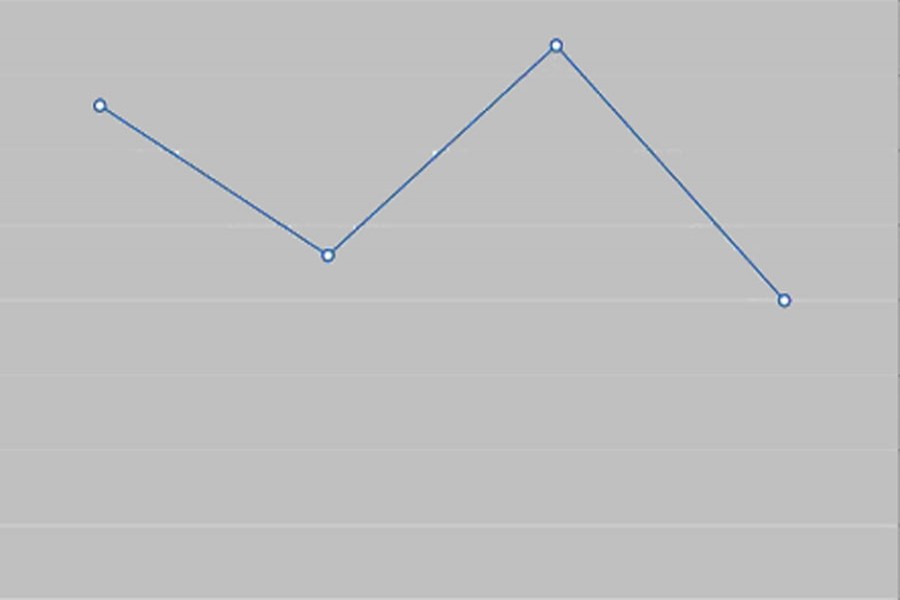
Published :
Updated :

Lending agencies like the World Bank (WB) and the Asian Development Bank (ADB) lower the rate of their estimation of Bangladesh's growth rate every year from the one projected by the government of Bangladesh. The controversy arises mostly with relation to the quality and credibility of the Bangladesh Bureau of Statistics (BBS) data, which are used in estimating the annual growth rate of the country's economy.
There was hardly any controversy with BBS data even a few years ago, but now no one takes them seriously. On the other hand, there is no independent private organisation that collects data from the practical fields and disseminates the same to the public for estimating and measuring the required economic variables in the economy. The researchers and academics also use the BBS data widely for research findings and in teaching materials.
The global economic organisations like the WB and the ADB also do not generate their own data excepting those for specific purposes. They largely depend on the BBS-supplied data for estimation of variables like Bangladesh's GDP growth rate. But they follow a cautious approach in using the BBS data. They take the downside of the estimations like the GDP growth rate while presenting those before the public. People in general and other stakeholders take their growth estimation to be credible.
Over the last few years, the government of Bangladesh has been getting embroiled in controversies with the lending agencies with regard to the accuracy of GDP growth rate. The Minister for Planning recently criticised what these two lending agencies said about the achievable growth rate in the FY 2017-18 and invited them to re-check their estimations by sitting down with the BBS authorities.
To the multinational lenders, two factors contribute to the growth rate in the economy. Those two factors are the productivity of the inputs and the rate of investment - especially by the private sector. With a static productivity, more investment will be needed to achieve a growth target in the economy. Productivity can be measured by the capital output ratio. If the capital output ratio is 4.0, (i.e. one unit of output requires four units of capital) then for a 7.5 per cent growth rate, the economy needs to have 30 per cent of the GDP as investment, which is not there in the economy.
Had Bangladesh achieved more efficiency in productivity, the economy would have required less investment for the same economic growth rate. The improvement or rise in productivity happens when economy uses more of the sophisticated techniques and also if the workers or users of the machines get better training in the use of machines.
In Bangladesh, we have scant information on these two issues and we do not see much of what is happening in the productivity area of the inputs. Bangladesh's drive forward in the economic achievement is largely underpinned by its growth in exports to the world market and also by increasing remittance flow from the non-resident Bangladeshis. But recently, the slow pace of the growth in export compared to what it had been there over a decade is making many people worried.
Questions are being asked, would Bangladesh be able to achieve a growth rate of 7.5 per cent with a slower growth in its exports in the coming days? If it cannot, what should it do to keep its export growth going? Joining the large economies through free trade agreements (FTAs) or Economic Unions for accessing their markets with its exports would be the right way forward for Bangladesh. But Bangladesh's policymakers were found to be not serious in this respect.
The next few years will be a testing time for Bangladesh as to whether it can achieve what it achieved in the past with a declining growth in its export.
The controversy we are having now with regard to the GDP growth rate can be left behind if BBS can regain public trust in its data. For that, the BBS, as an institution, should be reformed and reconstituted. Its independence must be guaranteed by law. It should be a body like a Commission or Authority, which will work independently sans any type of government interference or directive. For that, BBS should be staffed afresh with a renowned economist or a statistician as its head. Side by side, the government also should encourage the private organisations to come up in the areas of collecting statistics and disseminating the same to the public.
Worldwide, there are recognised methods for data collection. There should, therefore, be a body to see how the government-owned BBS is faring in accomplishing its functions. If the BBS data are not trusted by the people simply because of its government ownership, then any statistics the government uses for its policy setting or gives out for public understanding, will not be of any use for the purpose those were collected and disseminated.
Abu Ahmed is Professor of Economics, University of Dhaka. [email protected]


 For all latest news, follow The Financial Express Google News channel.
For all latest news, follow The Financial Express Google News channel.